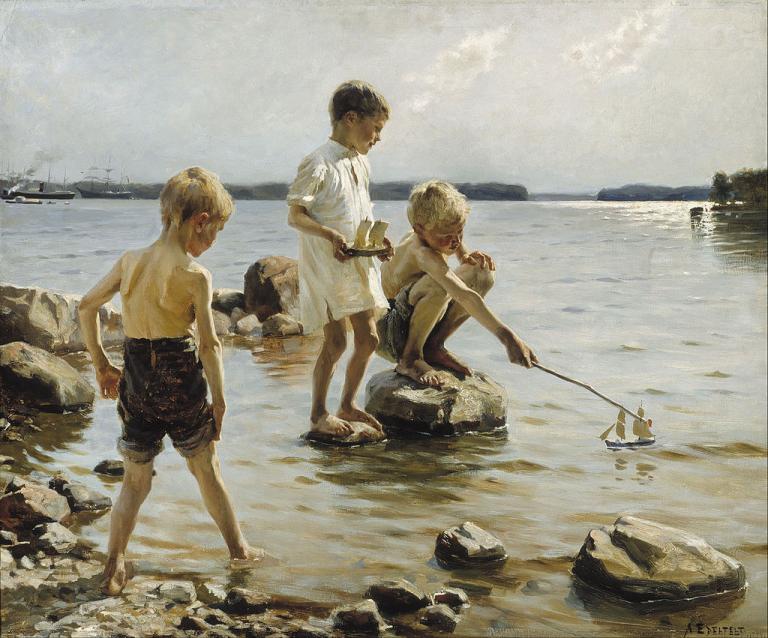I have blogged about the poetry of Anthony Esolen, whom I consider to be one of our best authors on Christianity and culture. A reading group I am in recently discussed his book Defending Boyhood: How Building Forts, Reading Stories, Playing Ball, and Praying to God Can Change the World.
If you are a parent of a boy, a teacher of a boy, if you have been a boy, or if you are a woman who has to deal with a grown up boy, you simply must read this book.
In his introduction, he draws on St. Augustine who defined “peace” as the “tranquility of order.” Whereas today we have neither peace nor tranquility nor order. He acknowledges the complexity of our problems and that girls too need defending.
Yet it is fitting to choose boys as the topic, because boys get so little sympathy from anybody, and because, I believe, they have been treated with scandalous shabbiness, contempt, neglect, and hostility, with obvious results in a variety of social pathologies: under-education, under-achievement, under-employment, crime, addiction to pornography, begetting of children out of wedlock, and, in some, a self-loathing flight from manliness itself. Pay special attention to boys, as the brave Christina Hoff Sommers has done in her book The War on Boys, and feminists will drum you out of their camp and aim their popguns at you for the rest of your life. Pay special attention to boys, as I am going to do here, and you will invariably be accused of misogyny: a classic case of “projection,” whereby people who are eaten up with hate and envy see only hate and envy in everyone else too.
Boys get no love, not even the ordinary attention that you would give to a big and active dog. I seek to remedy that. And I have recommendations to make. They are not mine, not really. They are those that every single person, both male and female, would have made and in other times and places did in fact make, for the raising up of clean, confident, and manly boys. My work is to remind people of reality, and bring them back to something like peace, the tranquility of order—even when that tranquility is to be observed in a heap of sprawling and clambering boys playing King of the Hill, or in all the other things, preparatory to wrestling with the world, that boys once did and would still do if they were given half a chance. (pp. 9-10)
Esolen goes on to write about the nature of boys, their development, and what they need to thrive. He backs up what he says with with abundant evidence–from personal experience and the experience of the human race, drawing on literature, history, and reason–and shows what is missing in the way we bring up and educate boys today.
Just to give one out of many examples, Esolen makes the point that boys need to be around other boys–to play, to make up games, to compete with each other, to learn teamwork, and to hone their individual identities.
They also need (and this can be a hard truth) to separate themselves from their mothers. He writes,
The boy must break away from the woman he loves best in the world, a woman from whom he has derived nurture and protection even as he grows tall and strong and learns to be her protector, and in the case of widowhood, her provider: such would the young man Jesus be. He must establish his identity as a man among men if he is then to return to the world of women, fit to marry a woman, if such is his calling, and to head a family in his turn. (p. 16)
Esolen shows how this is done.
In our day of “toxic masculinity,” gender confusion, feminized education, the devaluation of the masculine virtues, sexual immorality, and family breakdown, this book is extraordinarily important.
Plus, Esolen is such a good writer that his book is a joy to read.
And, in defending boys, he launches off into many related but different topics that are also illuminating. I’ll be posting about some of those later.
Seriously, read this book.
Illustration: “Boys Playing on the Shore” by Albert Edelfelt (Finnish, 1884) / Public domain via Wikimedia Commons














